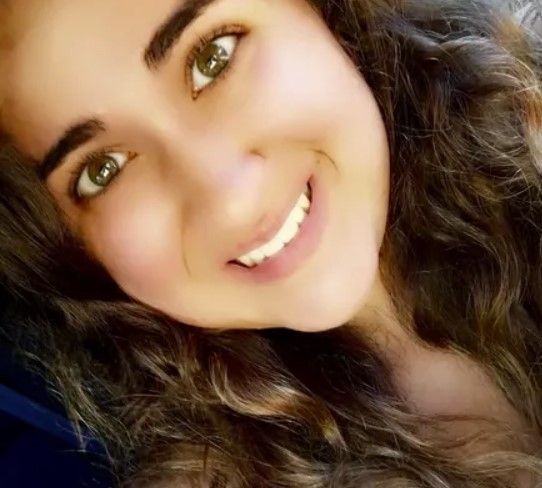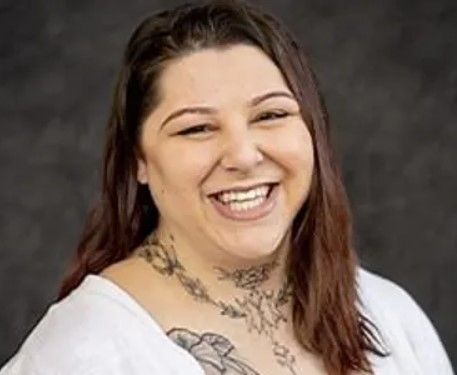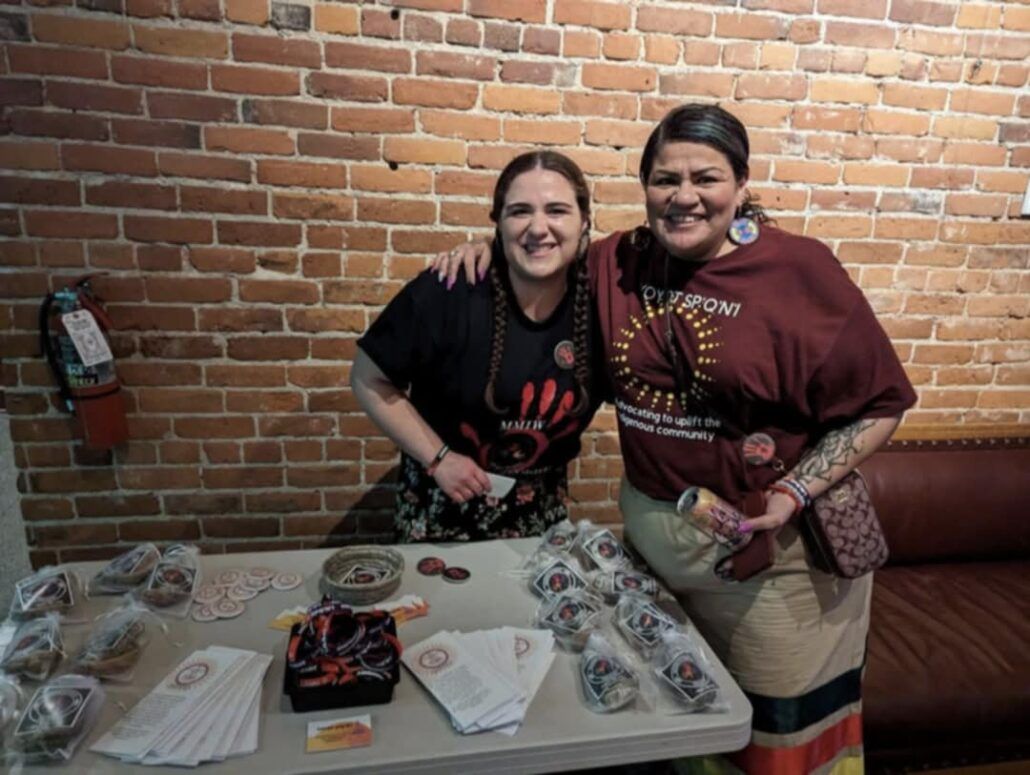Yoyot Sp’q’n’i brings hope to Spokane’s Indigenous communities
News Story by Matthew Kincanon | FāVS News
Indigenous communities face multiple challenges throughout the U.S., including domestic violence, mental health, substance abuse and homelessness, to name a few. In Spokane, the nonprofit organization Yoyot Sp’q’n’i seeks to address them.
For owner and chairperson Mariah Brigman (Spokane Tribe), it all started several years ago when she began learning about awareness for Missing and Murdered Indigenous Women (MMIW) and organized a vigil. It was at the vigil she met co-founder and co-chair Angelique “Angel” Tomeo (Colville Confederated Tribe and descendant of the Quinault Nation and Ft Peck Tribes, Nakota) and from there they found their niche and wanted to advocate for Indigenous people as much as they could.
“We prioritize our Indigenous community and that includes men, women, children and families because our mission we believe to uplift the world you have to uplift the Indigenous community,” said creative director and marketing manager Kristin Wiles (Spokane Tribe, Colville Confederated Tribes and Shuswap).
When providing people with assistance, Brigman said they go into it being non-judgemental and she wants people to feel comfortable and safe to come to them.
Wiles said their goal is one day eradicate family violence from within the community and they believe that it starts with their organization.
Yoyot Sp’q’n’i and its long reach
While they are located in Spokane, they have also provided assistance to people from the Blackfeet Nation (Montana) and Hopi Nation (Arizona). Brigman said they have helped families search for their loved ones, and Wiles said they have assisted people who wanted to get back home from Spokane to places such as North Dakota.
Their services include mental health, parenting and providing the homeless with resources. Their programs include a safe shelter for Indigenous families experiencing domestic violence where they will be culturally accommodated and receive trauma-informed healing, case management and substance use disorder (SUD) counseling. They also accept food donations and look for volunteers.
When it came to programs, Brigman said one thing they realized that was missing were culture programs in the community.
“There’s all these programs, but a lot of Natives don’t use them because they’re not culturally representative, they’re not very welcoming to people of different cultures,” Brigman said. “So, we decided that something to make them feel more comfortable and actually use the services is to have an Indigenous-led one where there could be culture.”
A lot of work they have done, Brigman said, is case management where they would find safe places for people to go, advocate for them and their needs, help reduce barriers when advocating within other agencies, and help people get into other services that they needed. They have also helped get people into treatment for addiction.
With more funds, comes more opportunities to help
Since they have received more funding, Brigman said they have been able to provide people with supplies and gas cards, put them in hotels and help them relocate. One time, they paid the rent for someone who was about to become homeless.
Other actions they have taken include outreach where they have gone into the community and handed out food, collaborated with the restaurant Indigenous Eats, and have done cooling centers in the summer and warming centers in the winter.
Over the last several years, Wiles said they have been helping with the MMIW crisis because domestic and family violence play a major part in it.

According to a study from the Department of Justice, 55.5% of Indigenous women and 43.2% of Indigenous men have experienced physical violence by an intimate partner. Washington state launched the Missing Indigenous Person Alert System (MIPA) back in 2022.
“MMIW is something that everyone on our board has been affected by some way or another,” Wiles said. “I personally have been affected by it as well.”
Since 2021, the organization has hosted a Missing and Murdered Indigenous Person (MMIP) event where they bring attention to the crisis. Last year, Wiles said they did an MMIP walkthrough where they teamed up with Soft Pencil, LLC, Tribal police and Spokane police and provided attendees a step-by-step walkthrough on how to file a missing persons report. At the end, they provided additional resources for people who needed extra assistance with finding missing loved ones.
Undoing the negative impacts of colonialism
When it comes to their focus on Indigenous people, Brigman wants people to know about the impact and how much colonization has affected them and why these resources are needed. Culture is prevention, and they want to do what is best for the people they serve.
“This work is very difficult and challenging, and it’s important for everyone to be kind,” Brigman said. “As well it takes a village to raise a child and to undo all the negative impacts of colonization.”
Brigman hopes other organizations try to provide cultural humbleness in their work and realize that it is important to be inclusive.
The organization’s website said they will continue to further their efforts in raising awareness for their MMIW family and work to build stronger relationships in the community.










Enjoyed reading about this nonprofit organization and seeing how they retain and sustain Native culture. Thank you, Matthew!